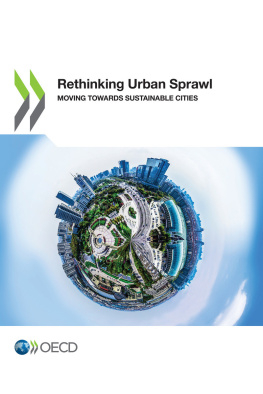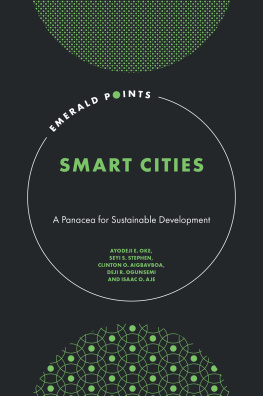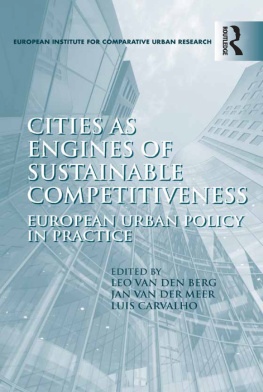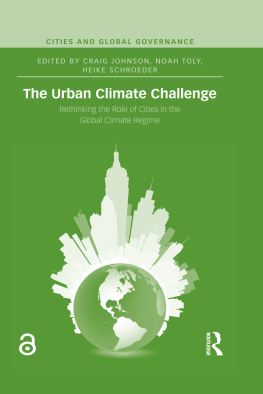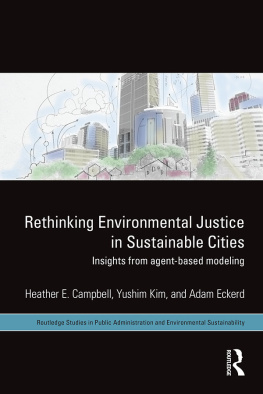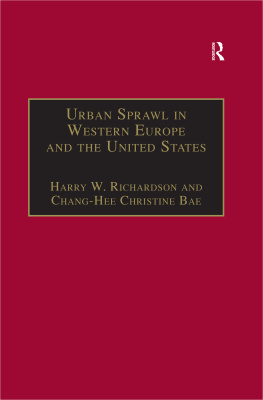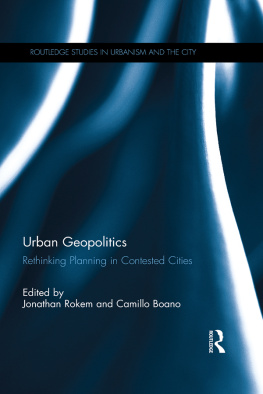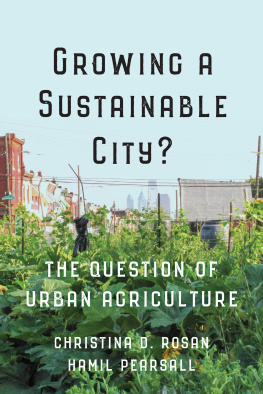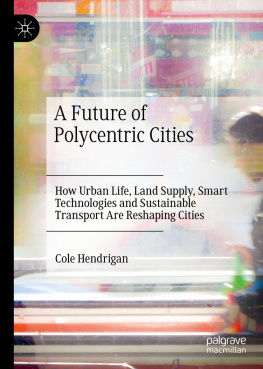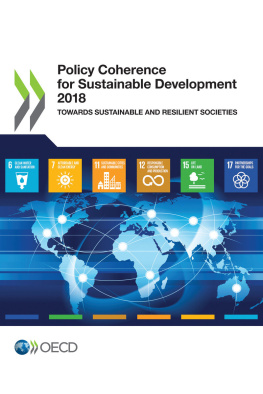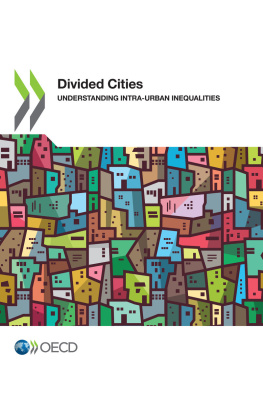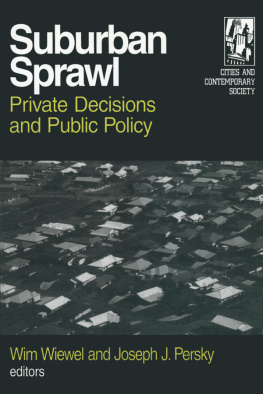coll. - Rethinking urban sprawl moving towards sustainable cities
Here you can read online coll. - Rethinking urban sprawl moving towards sustainable cities full text of the book (entire story) in english for free. Download pdf and epub, get meaning, cover and reviews about this ebook. year: 2018, genre: Politics. Description of the work, (preface) as well as reviews are available. Best literature library LitArk.com created for fans of good reading and offers a wide selection of genres:
Romance novel
Science fiction
Adventure
Detective
Science
History
Home and family
Prose
Art
Politics
Computer
Non-fiction
Religion
Business
Children
Humor
Choose a favorite category and find really read worthwhile books. Enjoy immersion in the world of imagination, feel the emotions of the characters or learn something new for yourself, make an fascinating discovery.
Rethinking urban sprawl moving towards sustainable cities: summary, description and annotation
We offer to read an annotation, description, summary or preface (depends on what the author of the book "Rethinking urban sprawl moving towards sustainable cities" wrote himself). If you haven't found the necessary information about the book — write in the comments, we will try to find it.
Rethinking urban sprawl moving towards sustainable cities — read online for free the complete book (whole text) full work
Below is the text of the book, divided by pages. System saving the place of the last page read, allows you to conveniently read the book "Rethinking urban sprawl moving towards sustainable cities" online for free, without having to search again every time where you left off. Put a bookmark, and you can go to the page where you finished reading at any time.
Font size:
Interval:
Bookmark:
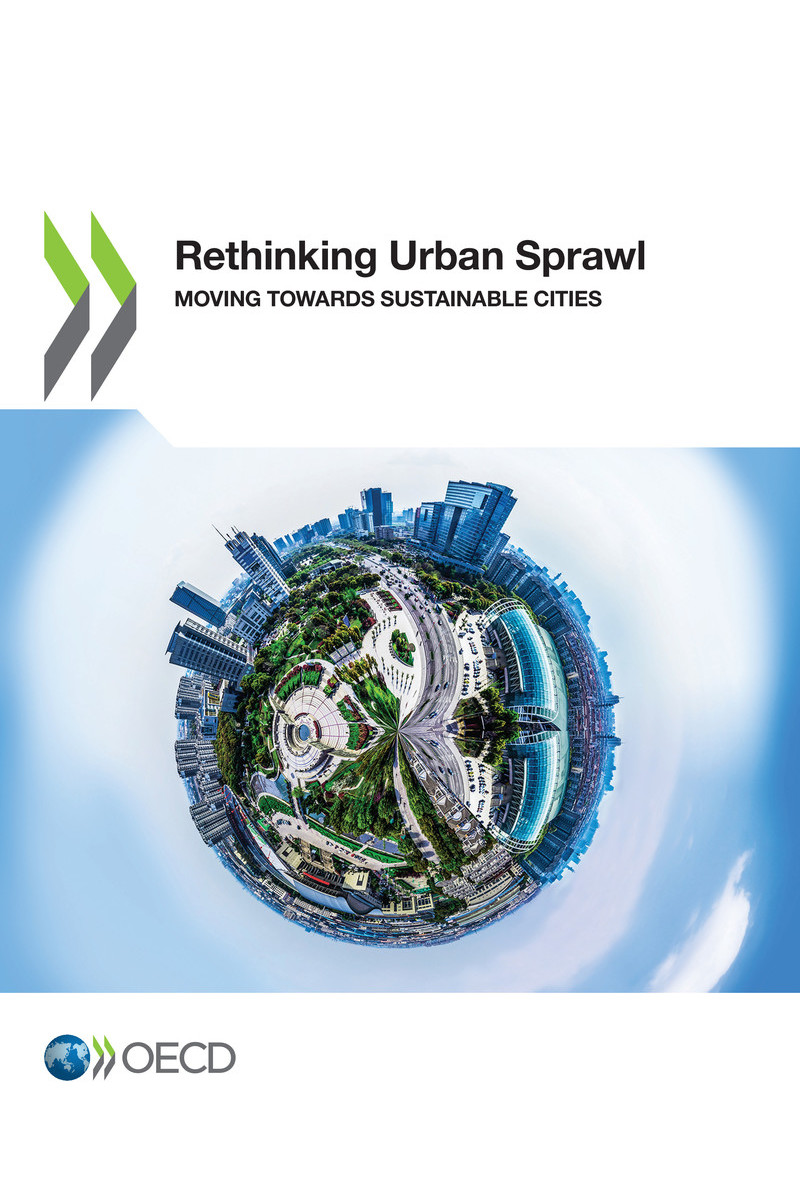
OECD (2018), Rethinking Urban Sprawl: Moving Towards Sustainable Cities , OECD Publishing, Paris.
http://dx.doi.org/10.1787/9789264189881-en
Home to more than half of the worlds population, cities are the engines of economic growth and employment. The 200 largest urban areas generate more than 60% of jobs and growth in the OECD. With the share of world population living in urban areas projected to reach 70% by 2050 (86% in OECD countries), the importance of cities will only increase.
Cities are increasingly interconnected, global arenas and face a range of environmental, economic and social challenges. They are responsible for over two-thirds of energy consumption and more than 70% of CO2 emissions globally. The OECD has estimated that outdoor air pollution could cause 6 to 9 million premature deaths a year by 2060, with cities particularly hard hit. Cities face a wide range of interconnected challenges, such as road congestion, lack of housing affordability, and social exclusion. Urban sprawl, a particular form of urban development, is often cited as a driver of these challenges.
Rethinking Urban Sprawl: Moving Towards Sustainable Cities offers a new perspective on urban sprawl, contributing to a better understanding of its evolution, causes and consequences. It provides new insights on the design, delivery and implementation of policies to shift urban development patterns towards more sustainable trajectories. This will be crucial to achieve the Sustainable Development Goals and meet the objectives of the Paris Agreement.
In particular, the report looks at past and current urban development patterns of OECD cities and establishes a new set of indicators that quantify the multiple dimensions of urban sprawl. It shows that cities in most of the examined OECD countries have become more fragmented, and the share of low-density areas in population and urban land coverage has increased. While there are differences between and within countries, urban form is generally evolving in a way that induces higher car dependency and longer commuting distances. Such a development pattern also substantially increases the per capita costs of providing public services. Water, sanitation, electricity, public transport, waste management, policing and other services that are key for well-being are much more expensive to provide in fragmented areas of low-density.
Therefore, coherent and targeted policy action is urgently needed from different levels of government to steer urban development towards more sustainable pathways. Policy instruments for greener and more cost-effective urban transport, such as appropriate pricing of car travel and parking, can be particularly effective in addressing the environmental consequences of urban sprawl in the short run. Land-use policy reforms promoting socially desirable levels of population density, such as relaxing maximum density restrictions and incentivising developers to provide public infrastructure for new constructions, can bear fruit in the longer run.
How cities develop over the next years will determine progress on addressing key environmental, economic and social challenges, including climate change and access to affordable housing. This report provides an important step towards assessing the state and implications of urban growth patterns, and identifies policies to steer cities towards inclusive and green growth.

Angel Gurra
OECD Secretary-General
This report is an output of the OECD Environment Policy Committee and its Working Party on Integrating Environmental and Economic Policies. The report was carried out under the overall responsibility of Shardul Agrawala, Head of the Environment and Economy Integration Division.
The report was authored by Ioannis Tikoudis, Walid Oueslati, Alexandros Dimitropoulos and Lara Engelfriet of the OECD Environment Directorate. Walid Oueslati co-ordinated and oversaw work on the report. The authors of the individual chapters were:
Alexandros Dimitropoulos, Ioannis Tikoudis, Walid Oueslati. |
Ioannis Tikoudis, Walid Oueslati, Alexandros Dimitropoulos. |
Ioannis Tikoudis, Lara Engelfriet, Walid Oueslati, Alexandros Dimitropoulos. |
Ioannis Tikoudis, Alexandros Dimitropoulos, Walid Oueslati. |
Alexandros Dimitropoulos, Ioannis Tikoudis, Walid Oueslati. |
Tobias Udsholt provided valuable inputs and suggestions and improved the dissemination of the work. Elizabeth Del Bourgo, Gabriella Scaduto-Mendola, Stphanie Simonin-Edwards and Janine Treves provided guidance throughout the editorial process. Katjusha Boffa, Soojin Jeong, Jacqueline Maher and Aziza Perrire provided administrative support.
The authors are grateful to the delegates to the Working Party on Integrating Environmental and Economic Policies and the Environment Policy Committee who provided valuable comments and feedback during the preparation of the report. The authors would like to thank the following OECD colleagues for providing insightful comments on earlier drafts of the report: Shardul Agrawala, Rudiger Ahrend, Ivan Hai, Kurt van Dender and Paolo Veneri. Feedback and comments from Simon Upton (former OECD Environment Director) are gratefully acknowledged. The authors also greatly appreciate inputs and comments from Jan Brueckner (University of California at Irvine), Elena Irwin (Ohio State University), Eric Koomen (VU University Amsterdam), Colin Price (Colin Price Free-lance Academic Services), and JunJie Wu (Oregon State University).
Font size:
Interval:
Bookmark:
Similar books «Rethinking urban sprawl moving towards sustainable cities»
Look at similar books to Rethinking urban sprawl moving towards sustainable cities. We have selected literature similar in name and meaning in the hope of providing readers with more options to find new, interesting, not yet read works.
Discussion, reviews of the book Rethinking urban sprawl moving towards sustainable cities and just readers' own opinions. Leave your comments, write what you think about the work, its meaning or the main characters. Specify what exactly you liked and what you didn't like, and why you think so.

